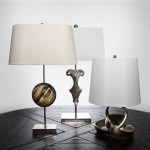What Degree Do You Need To Be An Interior Designer?
The field of interior design is a multifaceted profession that blends creativity with technical expertise. Individuals aspiring to shape interior spaces into functional and aesthetically pleasing environments often inquire about the necessary educational qualifications. While a natural aptitude for design and spatial awareness is beneficial, formal education provides the foundational knowledge, practical skills, and professional network essential for success in this competitive industry. Determining the right degree path is crucial for aspiring interior designers.
The path to becoming a professional interior designer isn't always rigidly defined. The specific degree requirements can vary depending on the scope of design work desired, the geographical location of practice, and the career aspirations of the individual. However, certain educational qualifications are widely recognized and highly valued by employers and clients alike. These qualifications demonstrate a commitment to professional standards and provide assurance of competence.
Generally, aspiring interior designers pursue degrees in interior design, interior architecture, or related fields. These programs equip them with the knowledge of design principles, space planning, building codes, materials, and construction methods. Furthermore, they foster the development of crucial skills such as drafting, computer-aided design (CAD), and communication.
Associate's Degree in Interior Design
An Associate's Degree in Interior Design, typically a two-year program, provides an introductory foundation in design principles and technical skills. This option can serve as a stepping stone for those seeking entry-level positions or those who plan to further their education with a bachelor's degree. Associate's degree programs generally focus on the practical aspects of interior design, covering topics such as space planning, color theory, furniture selection, and basic drafting techniques. Graduates of these programs may find employment as design assistants, showroom consultants, or junior designers, often working under the supervision of experienced professionals.
While an associate's degree can provide a valuable starting point, it may limit career advancement opportunities in the long run. Many higher-level positions and specialized roles within the interior design industry require a bachelor's degree or higher. Therefore, individuals with an associate's degree may need to consider pursuing further education to reach their full potential.
The curriculum of an Associate's degree program typically includes introductory courses in design history, principles of design, space planning, drafting, and computer-aided design (CAD). Students may also learn about materials, finishes, and sustainable design practices. Hands-on projects and studio work are often incorporated to provide practical experience and allow students to apply their knowledge in real-world scenarios.
Bachelor's Degree in Interior Design or Interior Architecture
A Bachelor's Degree in Interior Design or Interior Architecture is the most widely recognized and preferred qualification for aspiring interior designers. These four-year programs offer a comprehensive education in all aspects of the field, from initial design concept to project management and execution. The curriculum covers a wide range of subjects, including design theory, space planning, building codes, construction methods, materials and finishes, lighting design, and sustainable design practices. Students also develop advanced skills in drafting, CAD, 3D modeling, and presentation techniques.
Bachelor's degree programs often include internship opportunities, allowing students to gain practical experience working in design firms or related industries. These internships provide valuable exposure to real-world projects and allow students to network with professionals in the field. Moreover, a bachelor's degree can often be a prerequisite for professional certification, such as those offered by organizations like the Council for Interior Design Qualification (CIDQ).
The coursework in a Bachelor's degree program is significantly more rigorous and in-depth than that of an Associate's degree. Students are expected to develop critical thinking skills, problem-solving abilities, and a strong understanding of design principles. They also learn about the history of interior design and its cultural context. The program culminates in a capstone project, where students apply their knowledge and skills to design a comprehensive interior space.
Interior Architecture degrees often incorporate a stronger focus on the structural and technical aspects of building design. This can provide graduates with a more comprehensive understanding of how interior spaces interact with the overall building structure. This may be particularly valuable for designers who plan to work on larger-scale projects or renovations.
Master's Degree in Interior Design or Related Field
A Master's Degree in Interior Design or a related field is an advanced qualification that can enhance career prospects and open doors to specialized roles. While not always a strict requirement for entry into the profession, a master's degree can provide a significant competitive advantage, especially for those seeking leadership positions, teaching roles, or specialized areas of practice, such as healthcare design, sustainable design, or hospitality design. Master's programs typically require a bachelor's degree in interior design or a related field for admission.
Master's degree programs delve deeper into specific areas of interior design, allowing students to develop specialized expertise and advanced research skills. The curriculum often includes advanced design theory, research methodologies, sustainable design practices, and project management techniques. Students may also have the opportunity to conduct independent research and contribute to the body of knowledge in the field.
Graduates with a master's degree may pursue careers as design directors, project managers, educators, or researchers. They may also choose to start their own design firms or work as consultants, providing specialized expertise to clients. A master's degree can also lead to opportunities in academia, where graduates can teach and mentor future generations of interior designers.
The benefits of a master's degree extend beyond enhanced career prospects. The program fosters critical thinking, problem-solving, and leadership skills, preparing graduates to tackle complex design challenges and contribute to the advancement of the profession. It also provides opportunities to network with leading professionals in the field and build lasting connections.
Related fields for a Master's degree could include Architecture, Urban Planning, or even Business Administration, depending on the career goals of the individual. For example, a Master's in Business Administration could be beneficial for someone looking to start and manage their own interior design firm.
In addition to formal degrees, professional certification can significantly enhance an interior designer’s credibility and marketability. Organizations like the Council for Interior Design Qualification (CIDQ) offer certification exams that assess the competence of interior designers. Passing these exams demonstrates a commitment to professional standards and can be a valuable asset in the job market.
The National Council for Interior Design Qualification (NCIDQ) exam is a standardized test that covers a broad range of interior design topics, including design principles, building codes, and professional practice. Successful completion of the NCIDQ exam is often required for licensure or registration in many states and provinces. Certification and licensing requirements vary depending on the jurisdiction.
Regardless of the degree path chosen, aspiring interior designers should focus on developing a strong portfolio of work highlighting their design skills and creativity. A well-curated portfolio is an essential tool for showcasing one’s abilities to potential employers or clients. It should include a variety of projects, demonstrating a range of skills and design styles. The portfolio should be professionally presented and easy to navigate.
Furthermore, strong communication skills are crucial for success in interior design. Interior designers must be able to effectively communicate their ideas to clients, contractors, and other stakeholders. They must also be able to listen carefully to their clients’ needs and translate them into design solutions. Effective communication builds trust and fosters collaboration throughout the design process.
The field of interior design is constantly evolving, with new trends, technologies, and materials emerging regularly. Therefore, continuous learning is essential for interior designers to stay current and competitive. Attending industry conferences, workshops, and seminars can help designers stay abreast of the latest developments and expand their knowledge base. Online courses and professional development programs offer additional opportunities for learning and skill enhancement.
In conclusion, while the specific degree requirements may vary, a Bachelor's Degree in Interior Design or Interior Architecture is generally considered the most valuable and widely recognized qualification for aspiring interior designers. An Associate's Degree can provide a starting point, and a Master's Degree can enhance career prospects and open doors to specialized roles. Ultimately, the right degree path depends on the individual's career goals and aspirations.

How To Become An Interior Designer Insights Archive Fairfield University News

How To Become An Interior Designer

Do You Need A License To Become An Interior Designer

Ontario Scholarships How To Become An Interior Designer

Interior Design Degree Programs

Can I Become An Interior Designer Without A Degree Degreequery Com

Interior Design Anne Arundel Community College

Quick Read How Important Is An Interior Design Degree

How To Become An Interior Designer In 15 Simple Steps

What Does An Interior Designer Do Careerexplorer








